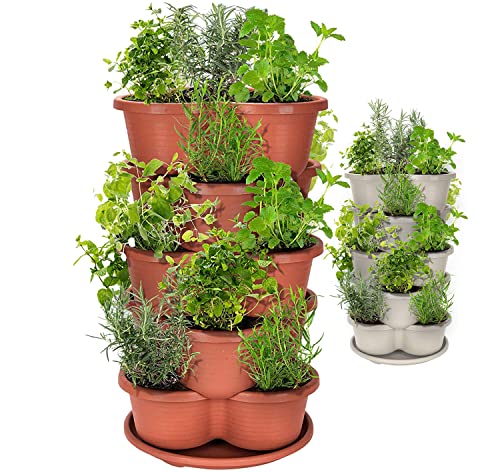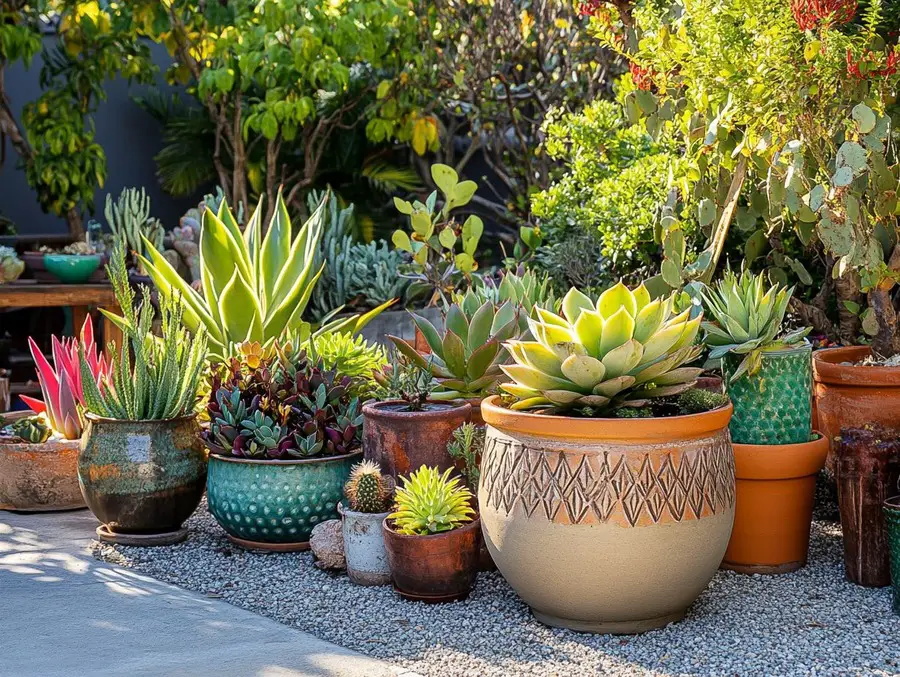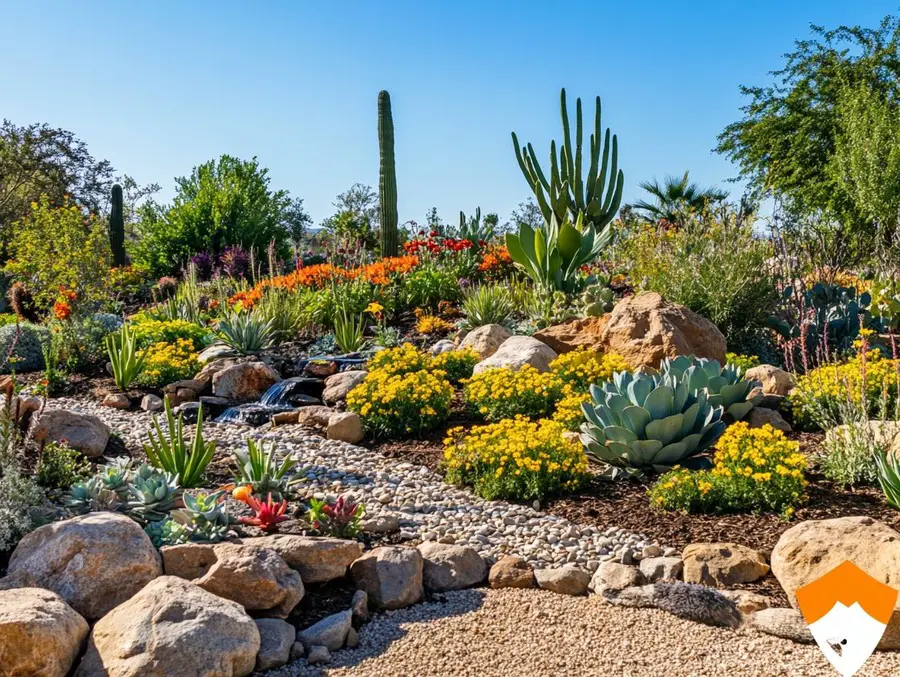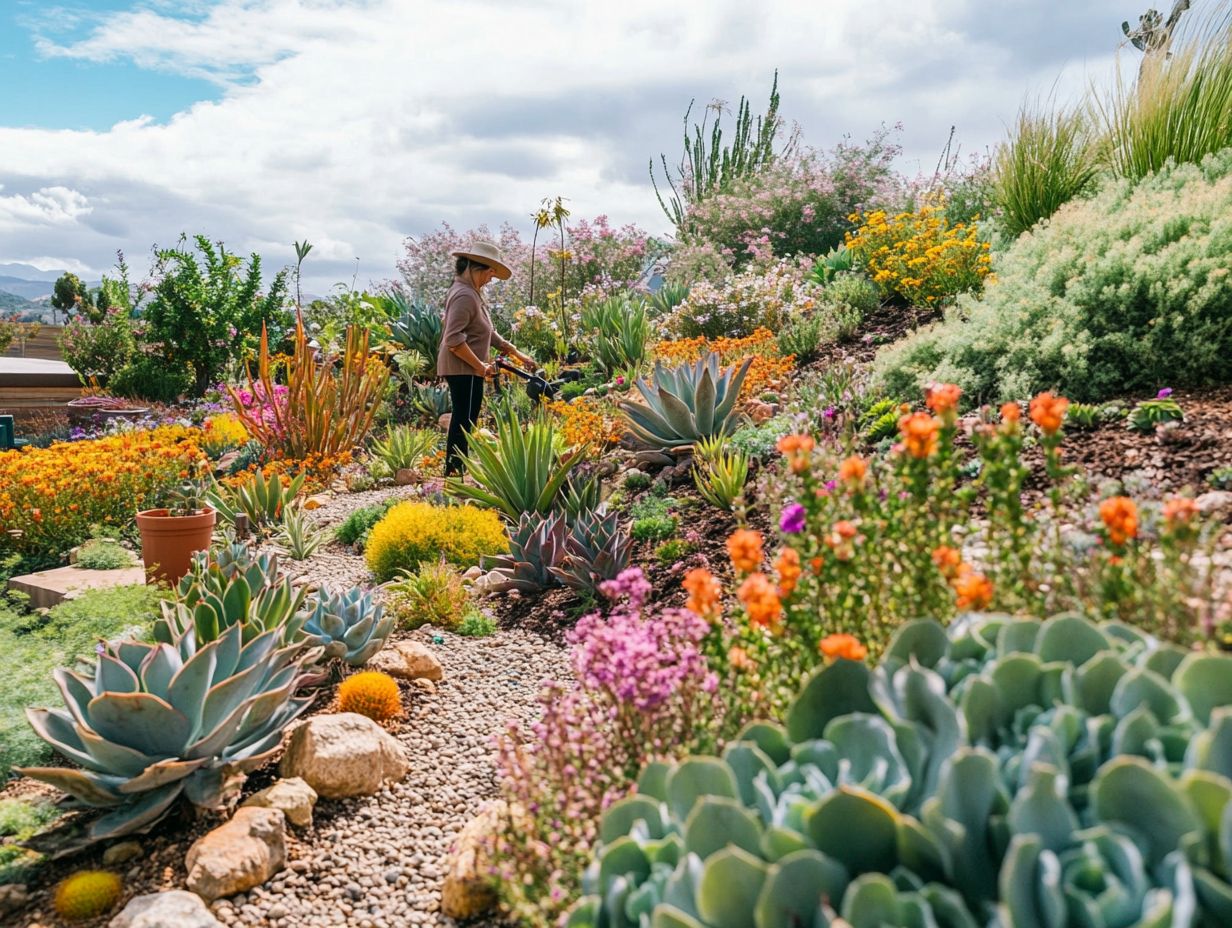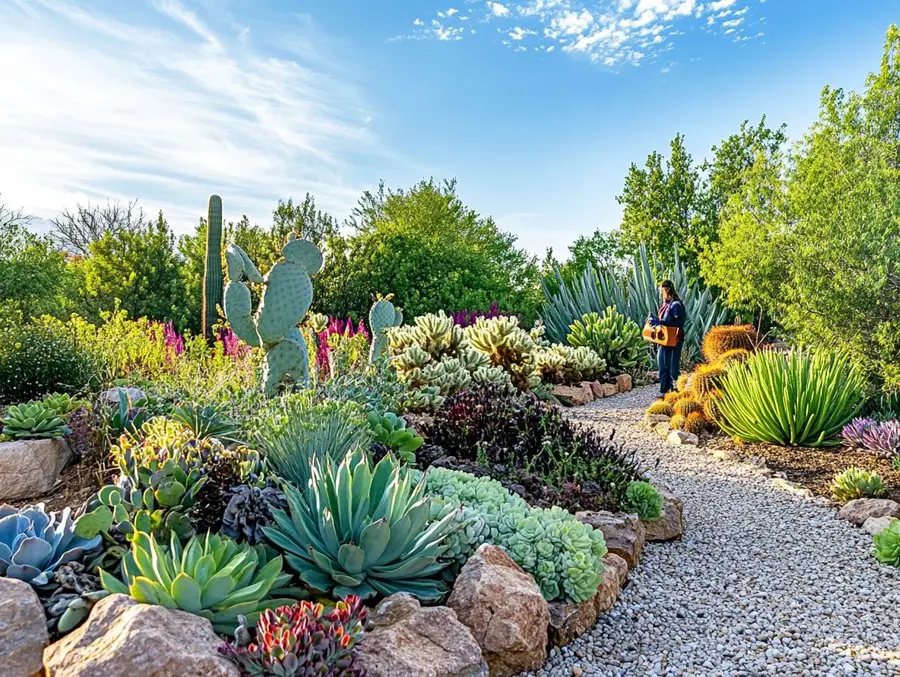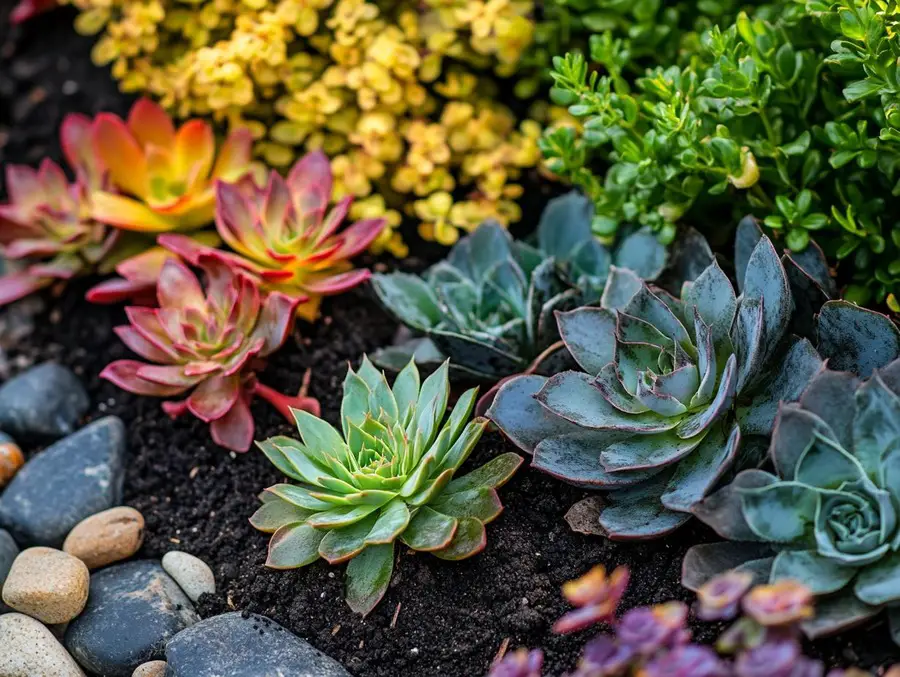We use affiliate links. If you purchase something using one of these links, we may receive compensation or commission.
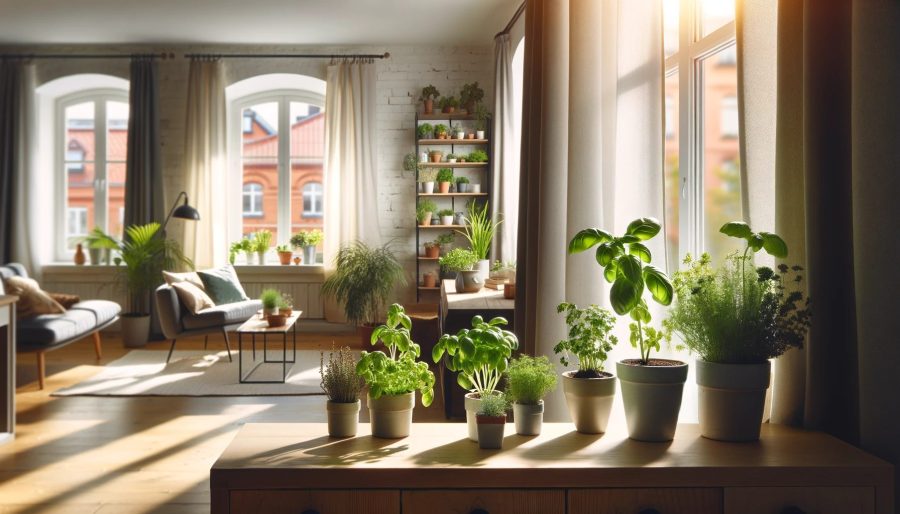
Discover the joys of an apartment herb garden! Easy tips and tricks for fresh, flavorful herbs right in your cozy urban space.
Key Takeaways:
- Growing an apartment herb garden is simple.
- Use well-draining pots and place them in sunny spots. Regular watering, without overdoing it, is key.
- Start with easy herbs like basil or parsley to add fresh flavors to your urban living space.
Imagine your own little green haven in the heart of the city with an apartment herb garden!
Our guide is brimming with simple, creative ideas to transform any small space into a lush, aromatic oasis.
Dive into the world of urban gardening and add a fresh twist to your home and meals.
Starting an Apartment Herb Garden
Starting an herb garden in an apartment offers a practical and enjoyable way to bring a slice of nature into urban environments.
These gardens turn limited spaces into vibrant areas filled with greenery and delightful aromas.
Bringing Nature to Urban Living
Starting an herb garden in an apartment offers a practical and enjoyable way to bring a slice of nature into urban environments.
These gardens turn limited spaces into vibrant areas filled with greenery and delightful aromas.
Culinary Enhancement at Home
Having fresh herbs readily available elevates the flavors in your dishes, adding a personal touch to your cooking. This convenience is a game-changer for home chefs looking to enhance their culinary creations.
Therapeutic Benefits of Gardening
Tending to an apartment herb garden is not only therapeutic but also provides a sense of accomplishment. Watching your plants thrive can be a rewarding experience.
Sustainable Urban Gardening
Apartment herb gardening is a sustainable practice that deepens your connection with the food you consume.
It promotes a greater appreciation for home-cooked meals and is a delightful addition to daily life, making the most out of small living spaces.
Choosing the Right Herbs for Your Apartment Garden
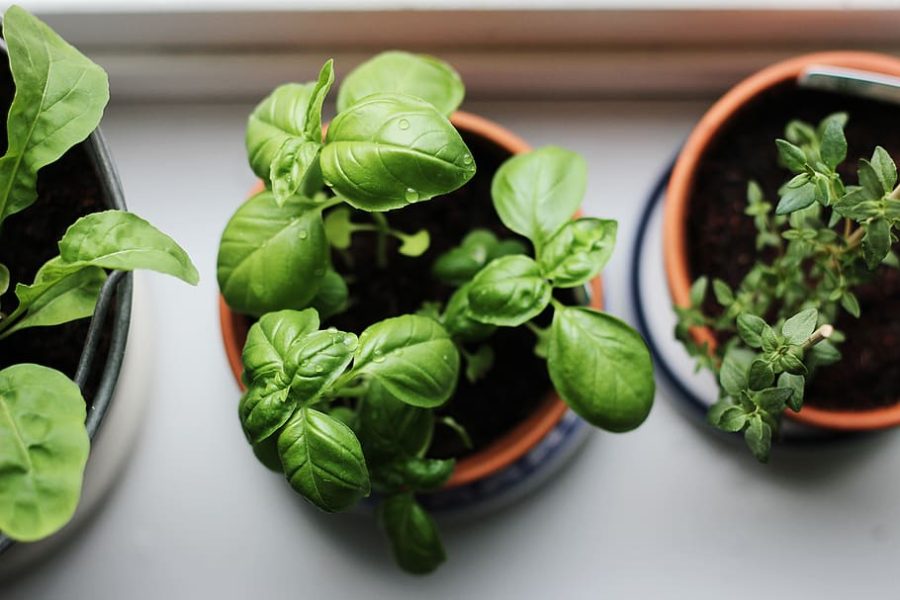
Choosing the right herbs for your apartment garden is a delightful journey that blends personal preference with practical considerations.
Key factors include the available space, the amount of sunlight your apartment receives, and your culinary habits.
Basil, often hailed as the king of herbs, thrives in indoor environments with plenty of sunlight.
It needs at least six hours of sunlight per day and well-draining soil.
Basil is a staple in dishes like pesto and caprese salad, making it a versatile choice for any home chef.
Parsley, rich in vitamins A, C, and K, is incredibly nutritious and versatile.
It adapts well to various dishes, from soups and stews to salads and sauces. Parsley requires a pot with good drainage and regular watering, thriving in a sunny location.
Cilantro, known for its fresh, citrusy flavor, is a favorite in Mexican, Indian, and Thai cuisines.
It grows best in well-draining soil and needs a sunny spot.
Regular harvesting of cilantro leaves will ensure a continuous supply for your culinary experiments.
We will cover growing these herbs in more detail later in the article.
For smaller spaces, herbs like chives, mint, thyme, rosemary, and oregano are excellent choices.
They can be grown in pots or small containers, with some, like parsley and cilantro, thriving in vertical gardens.
These herbs offer a range of flavors and aromas, making them perfect for enhancing a variety of dishes.
Their compact growth habit makes them ideal for apartment dwellers looking to maximize their gardening space.
Selecting herbs for an apartment garden is about finding a balance between your taste preferences, the space you have available, and the specific growing requirements of each herb.
With the right choices, you can enjoy a lush, aromatic, and practical herb garden that enhances both your living space and your meals.
Setting Up Your Apartment Herb Garden
Creating a thriving herb garden in an apartment setting starts with understanding the basics of setup and environment.
Proper planning and knowledge can turn even a small space into a green sanctuary.
Selecting Containers and Soil
Importance of Drainage: Opting for pots with proper drainage is crucial.
Herbs dislike waterlogged conditions, which can lead to root rot.
Containers with drainage holes at the bottom ensure excess water flows out, keeping the soil at an optimal moisture level.
Pot Size: Choosing the right pot size is essential for the health of your herbs.
Each herb variety has unique root system characteristics. A pot that’s too small can restrict root growth, while a very large pot for a small plant can lead to water retention in the soil.
Generally, a 6-12 inch pot is suitable for most herbs, providing ample space for root development and healthy growth.
Sunlight and Temperature Considerations
Sunlight Needs: Herbs generally thrive in abundant sunlight. Aim for at least 6 hours of direct sunlight each day.
This consistent exposure is key to promoting healthy growth and maximizing the flavor of the herbs.
Temperature: Herbs grow best in moderate temperatures, typically between 60-75°F.
Extreme temperature fluctuations can stress the plants, so it’s important to maintain a stable environment.
Solutions for Limited Light: In apartments where natural light is scarce, position your herbs near south-facing windows to maximize light exposure.
If this isn’t sufficient, consider using grow lights. These artificial lights can effectively supplement or replace natural sunlight, ensuring your herbs receive the light they need to flourish.
Apartment Herb Garden Kit
Starting with an apartment herb garden kit is an easy solution for your herb garden especially if you are new to gardening in an apartment.
Introducing our indoor herb garden starter kit, the perfect solution for growing fresh, aromatic herbs in the comfort of your own home, all year round! Our herb kit comes with everything you need to get started, including pots, soil, seeds, a set of garden tools, illustrated instructions, and a soil meter to help you monitor the health of your plants. From Amazon
Essential Tips for a Successful Apartment Herb Garden
The journey of creating an apartment herb garden is an adventure filled with learning and growth.
To ensure success, it’s essential to understand how to make the most of your limited space.
This guide provides invaluable tips and tricks, from maximizing vertical spaces to selecting the right containers, ensuring that even the smallest of apartments can become a verdant haven of fresh herbs.
Let’s dive into these essential strategies to help your urban garden flourish.
Maximizing Your Space
In apartment herb gardening, clever space utilization is key.
Embracing vertical gardening with hanging planters and wall-mounted shelves can transform sparse areas into lush, green spaces.
Selecting the right containers, like window boxes or compact pots, optimizes your limited area, allowing a flourishing herb garden in even the smallest apartments.
Vertical Gardening:
Transform your limited space into a lush garden with vertical gardening.
Use hanging planters, trellises, or wall-mounted shelves to grow herbs upwards, making efficient use of available vertical space.
This not only adds an aesthetic appeal to your apartment but also allows you to cultivate a variety of herbs without cluttering your floor space.
Container Selection:
Choosing the right containers is crucial. Opt for space-efficient options like window boxes, which can be attached to windowsills, or small pots suitable for shelves or even ceiling hangings.
These containers should not only fit into your available space but also complement the décor of your apartment, creating a harmonious and green living environment.
Soil Selection for Apartment Herb Gardens
Selecting the right soil is as crucial as choosing the right seeds for your apartment herb garden.
Avoiding Garden Soil
Related Content
Visit my Amazon Influencer Page for videos and gardening products Grow Your Own Garden







